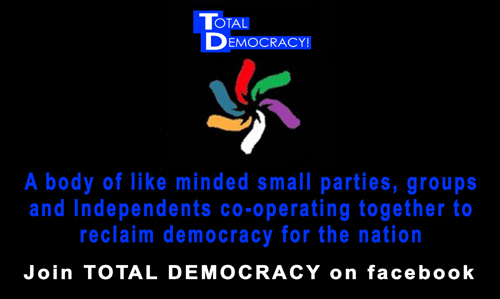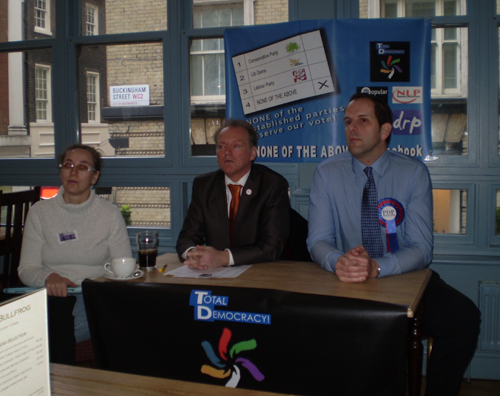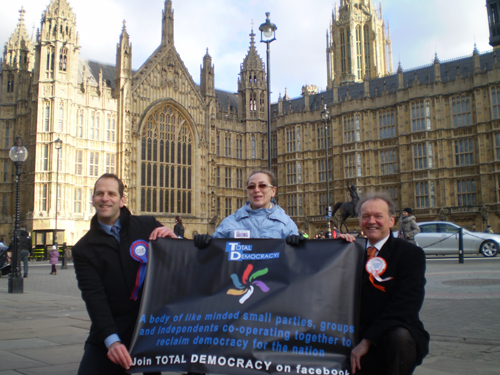Total Democracy
 The new co-operative campaign group Total Democracy held it’s first meeting on the 2nd February. Foundered by four centrist parties, including the National Liberal Party, it unveiled its first campaign press release calling for an additional box on all ballot papers ‘None of the above’. This will show whether the declining turnouts at elections is due to voter apathy as the main parties suggest, or due to disillusionment with those parties and the system, as we say!
The new co-operative campaign group Total Democracy held it’s first meeting on the 2nd February. Foundered by four centrist parties, including the National Liberal Party, it unveiled its first campaign press release calling for an additional box on all ballot papers ‘None of the above’. This will show whether the declining turnouts at elections is due to voter apathy as the main parties suggest, or due to disillusionment with those parties and the system, as we say!
What is Total Democracy? Officially we describe it as A Coalition of parties, pressure groups, individuals and anyone else with an interest in politics and democracy?
So we know it’s a political group but who is it for?
The first strapline (slogan) is, Ordinary people reclaiming politics. So we know it’s not for professional politicians! All of us here are part-time, CONVICTION politicians. We do it because we would like to see CHANGE.
The second strapline is, A body of like minded small parties, groups and Independents co-operating together to reclaim democracy for the nation. Thus the change we would like to see is bringing politics back to the people i.e. greater democracy. This phrase, so often misused, originates from the Greek word (dēmokratía) “rule of the people”. Clearly, under that definition our political system is very far from democratic. Our political masters say we live in a so-called ‘representative democracy’. This not the rule of the people but by a professional political class.
Nor are these professional politicians representative since, whatever the issue, be it in war or in peace, there is usually a gaping chasm between what these politicians believe and what the ordinary public believes.

Party representatives unveiling first campaign (NOTA)
For the National Liberal Party, we might highlight the gulf between the rhetoric of self-determination and the practice, for Democratic Reform Party it might be the gulf between calls for political reform and the resistance of Parliament to heed those calls, for the Peoples Democratic Party it might be the gulf between what politicians say and what they actually do, for the Popular Alliance it might be Parliament’s failure to have worked in the real world compared to the rest of us.

Party representatives unveiling TD banner outside Parliament.
Presently, there are four small centrist parties, the founders, involved but we hope to expand, including independents and pressure groups, once a constitution is in place.
Date: February 8, 2013
Categories: Articles, Party News































